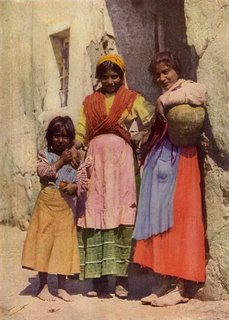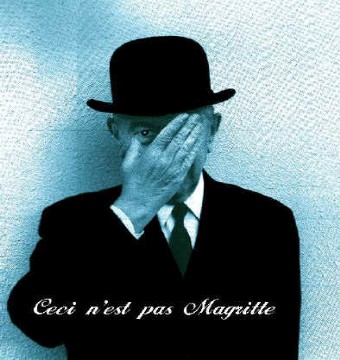 I made a comment about "gypsies" over at law school virgin the other day, and it motivated me to write a post on them.
I made a comment about "gypsies" over at law school virgin the other day, and it motivated me to write a post on them.
I think my first exposure to "gypsies" was as a child. It always seemed they were depicted as carnies, or fortune tellers, and in an ominous, though often Disney, sort of way. I'm sure I'm not alone here. When I got older, my dad got really into the "Gypsy Kings." Later, I heard they throw their babies at you so that when you drop your bag to catch it, they steal your bag. Never really thought much about it.
When I lived in Paris, I had a special Romanian friend, Karina. She moved back to Bucharest around Christmas time. I went and visited her during spring break. She was smart, educated, easy on the eyes, tolerant and fairly liberal. We traveled around Romania together for the week and it was an absolute blast. Romania is a beautiful country, I highly recommend traveling there if you get the chance, but getting around without a "special friend" might be difficult. If you speak any latin-based language, you should be able to get along.
We spent a few nights on Neptune Beach along the Black Sea. As we were walking down the street one day, a girl of about 10 years-old who had been walking in front of us suddenly turned around so that she was facing us. She had dark skin, dirty black hair, and to this day, the most beautiful eyes I have ever seen in my life. They were a profound greenish turquoise: what you would imagine the color of a moderately deep lagoon filled by a waterfall in New Zealand to be. Set against her darker skin, it was a thing of beauty. I stopped in my tracks and just stood there staring at her: bouche bée.
What's wrong with you?, Karina asked me.
That...that...girl's eyes...they're...beautiful.
Yeah...but she's a gypsy.
It was at that moment, I realized that if this educated girl would come out with a comment like that, these people had problems.
I don't want to go into the details of what you can find on wikipedia or by googling "gypsy," but I think that the Roma are the true diaspora of the earth, and they have always evoked a certain sympathy with me.
Basically, the Roma are only called "gypsies" because of an old mistaken belief that they came from Egypt, and that misnomer exists in several different languages. No one seems to care enough to change it. They don't have a written history, so no one really knows where they came from, but we now think they that they immigrated from India in the 10th Century, but no one knows why. Some say they were disaffected "untouchables." The largest population now is in eastern Europe (especially Romania) and the balkans.
They were the only race other than Jews were who slaughtered during the holocaust, but again no one knows the exact number. About 70% of the Roma population in Poland was wiped out. Dialects of the language were extinguished. Estimates range that from between 200,000 to 1.5 million Roma were killed by the Nazis. Roma victims have never received any sort of reparations, and their slaughter during the Third Reich was only belatedly recognized.
To this day, most countries treat them as a problem. They are not a recognized national minority in most countries, are not represented in local or national governments, and are subject to discrimination and often physical attacks. They live in squalor and unsanitary conditions in make-shift shanty towns. Many Eastern Europeans (not all of course) see them as dirty outsiders who live off of social welfare. While we have abandoned the pejorative "to jew someone (thank goodness), we continue to use "gyp" which owes its etymological source from gypsy, which again, isn't even accurate itself.
And it's not helped by the fact that the Roma themselves see the outside world as unclean themselves and so have no real desire to integrate or participate.
I saw a film about a Slovenian working for Habitat for Humanity, who decided to try and help the Roma in that country. When he was asking local businesses for help, the owner of one business said that he would like to donate 3 and 1/2 cents for each roma person that lived in the community. The Slovenian thanked him for his generosity, but asked him..."why such an odd amount?"
The man responded, "Because that's how much a bullet costs"


















